Resources for the Ethical Treatment of Animals
 Northwestern University receives accreditation from AAALAC, International. You can find a link to Northwestern University’s AAALAC accreditation letter here.
Northwestern University receives accreditation from AAALAC, International. You can find a link to Northwestern University’s AAALAC accreditation letter here.
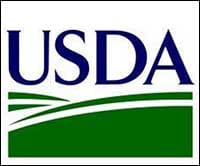 The United States Department of Agriculture (USDA) Animal and Plant Health Inspection Service. You can find links to Northwestern University’s USDA inspection reports here: Hogan Lurie Montgomery Ward Pancoe
The United States Department of Agriculture (USDA) Animal and Plant Health Inspection Service. You can find links to Northwestern University’s USDA inspection reports here: Hogan Lurie Montgomery Ward Pancoe
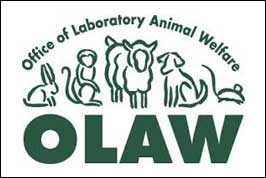 The Office of Laboratory Animal Welfare (OLAW) is responsible for monitoring Public Health Services (PHS)-assured institution's compliance with the PHS Policy on the Humane Care and Use of Laboratory Animals. OLAW has a memorandum of understanding in place with USDA, FDA, NA, NASA, and NSF.
The Office of Laboratory Animal Welfare (OLAW) is responsible for monitoring Public Health Services (PHS)-assured institution's compliance with the PHS Policy on the Humane Care and Use of Laboratory Animals. OLAW has a memorandum of understanding in place with USDA, FDA, NA, NASA, and NSF.
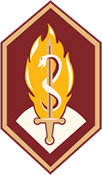 The Department of Defense (DoD) provides extramural funding opportunities and manages the oversight of studies involving animals with the Animal Care and Use Review Office (ACURO). They have their own regulations, standards, and requirements including secondary review by ACURO of DoD funded protocols prior to releasing funds. The DoD also has specific requirements for notification of changes to animal study protocols prior to implementation.
The Department of Defense (DoD) provides extramural funding opportunities and manages the oversight of studies involving animals with the Animal Care and Use Review Office (ACURO). They have their own regulations, standards, and requirements including secondary review by ACURO of DoD funded protocols prior to releasing funds. The DoD also has specific requirements for notification of changes to animal study protocols prior to implementation.
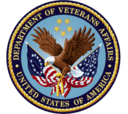 Department of Veteran Affairs (VA) funds studies to laboratories that have an appointment at a VA Hospital. The NU IACUC and the local VAs have memorandum of understanding in place to facilitate VA funded research at Northwestern. The VA requires review of protocols by the VA IACUC and VA Central Office. For assistance with navigating the VA review process, please reach out to the IACUC Office.
Department of Veteran Affairs (VA) funds studies to laboratories that have an appointment at a VA Hospital. The NU IACUC and the local VAs have memorandum of understanding in place to facilitate VA funded research at Northwestern. The VA requires review of protocols by the VA IACUC and VA Central Office. For assistance with navigating the VA review process, please reach out to the IACUC Office.
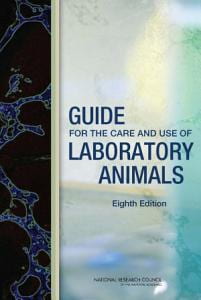 The Guide for the Care and Use of Laboratory Animals, commonly referred to as “The Guide,” provides acceptable standards for animal care programs to follow. PHS-assured institutions are required to use The Guide to evaluate their animal care programs and serves as the basis for many policies and regulations.
The Guide for the Care and Use of Laboratory Animals, commonly referred to as “The Guide,” provides acceptable standards for animal care programs to follow. PHS-assured institutions are required to use The Guide to evaluate their animal care programs and serves as the basis for many policies and regulations.
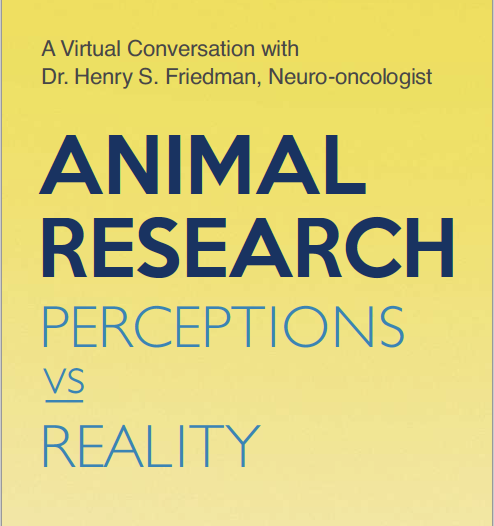 Read a virtual conversation with Dr. Henry S. Friedman, Neuro-oncologist with questions and answers about animal research. This article is published by the Foundation for Medical Research.
Read a virtual conversation with Dr. Henry S. Friedman, Neuro-oncologist with questions and answers about animal research. This article is published by the Foundation for Medical Research.
 The Foundation for Biomedical Research is the oldest and largest organization in the US dedicated to improving human and animal health by promoting public understanding and support for humane and responsible animal research.
The Foundation for Biomedical Research is the oldest and largest organization in the US dedicated to improving human and animal health by promoting public understanding and support for humane and responsible animal research.
 Americans for Medical Progress (AMP) focuses on public outreach that builds understanding and appreciation for necessary and humane animal research. AMP launched Biomedical Research Awareness Day (BRAD) in 2016 which is celebrated on the third Thursday of April to promote the use of animals in research to the general public.
Americans for Medical Progress (AMP) focuses on public outreach that builds understanding and appreciation for necessary and humane animal research. AMP launched Biomedical Research Awareness Day (BRAD) in 2016 which is celebrated on the third Thursday of April to promote the use of animals in research to the general public.
 Understanding Animal Research promotes broad understanding and acceptance of the humane use of animals in biomedical research in the UK, to advance science and medicine.
Understanding Animal Research promotes broad understanding and acceptance of the humane use of animals in biomedical research in the UK, to advance science and medicine.
 Speaking of Research provides accurate information about the importance of animal research/animal testing in medical and veterinary science.
Speaking of Research provides accurate information about the importance of animal research/animal testing in medical and veterinary science.